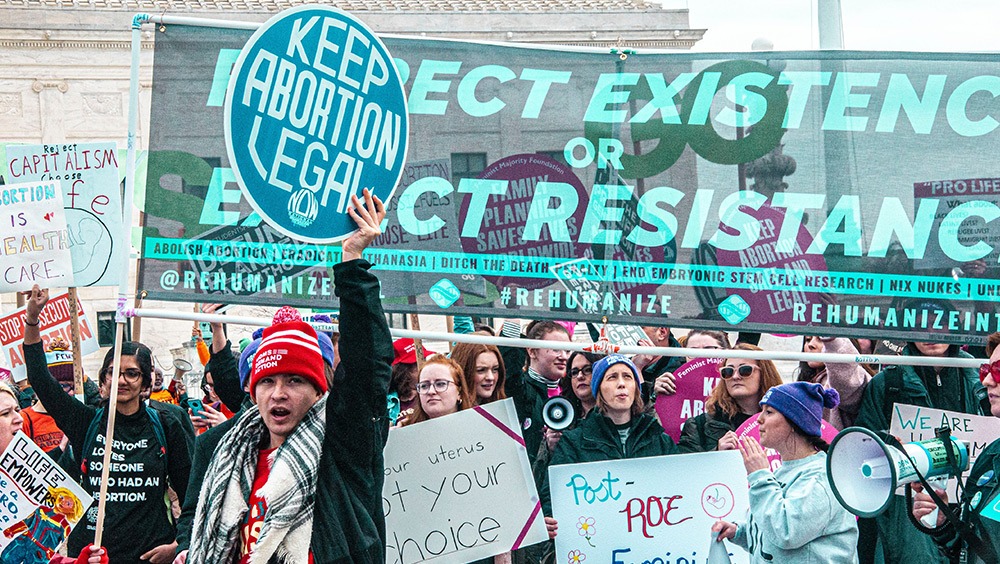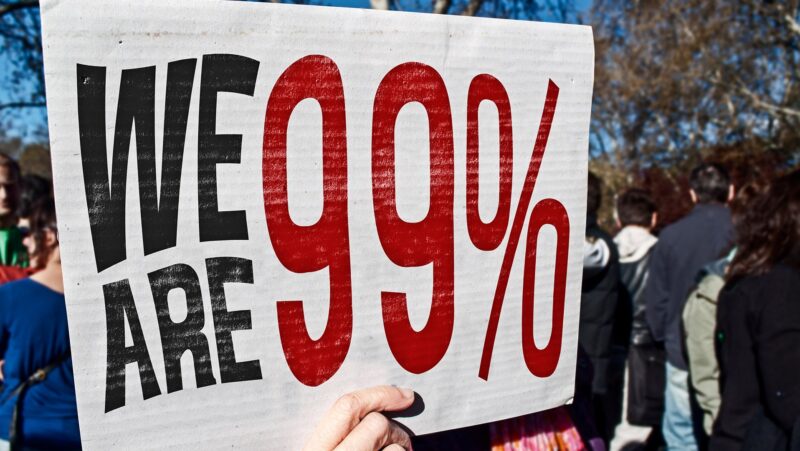March for Life: 50 Years of the First Amendment in Action

The March for Life, an annual protest by people, communities and organizations opposing abortion, celebrates its 50th anniversary on January 20, 2023. But something is different this year. This is the first march following Dobbs v. Jackson (2022), in which the Supreme Court overturned Roe v. Wade and said there is no constitutional right to abortion access. This was a landmark victory for the anti-abortion movement, but by no means indicates the end of the fight over abortion.
Roe may be gone, but no one on either side of this issue is laying down their protest signs — and religion can be found throughout. From the profoundly devout to lifelong atheists, people of all faiths and none are out on the streets exercising their First Amendment right to express their deepest beliefs and petition for policy changes on this divisive issue.
The common narrative about religion and abortion says that opponents of abortion access are religious, while advocates of abortion access are not religious. But this does not hold true to life. This binary is tired, historically inaccurate and counterproductive in the pursuit of a grounded conversation about reproductive rights.
People of faith and nonbelievers sit along the spectrum of the issue of abortion, a reality clearly illustrated by the March for Life itself.
The March for Life was founded by Nellie Gray, a Roman Catholic lawyer who partnered with the Knights of Columbus to host the inaugural protest on the first anniversary of Roe v. Wade. Ever since, many Catholic officials have been steady supporters of the March for Life, such as Bishop Michael F. Burbidge of Arlington, Va. For some Catholics, to assemble and protest against abortion access is considered an exercise of their faith. In a statement at the 2022 March for Life, Burbidge reflected on this civic exercise, proclaiming, “As followers of Christ, we march peacefully each year in our nation's capital to give witness to these truths [the sacredness of the unborn] to a nation in which many in public office and others throughout our communities continue to reject them.”
But Catholics do not speak with one voice. For example, Catholics for Choice, a Washington, D.C. nonprofit dedicated to amplifying pro-choice Catholic voices, took the 2022 March for Life as an opportunity to exercise their members’ own right to petition. The night before the march, Catholics for Choice held a counterprotest outside of the Basilica of the National Shrine of Immaculate Conception, the largest Catholic church in the U.S., by projecting messages such as “Pro-choice Catholics you are not alone” on the outer walls of the building. President Jamie Manson said, “[T]he so-called ‘March for Life’ does not speak for me. I support abortion access because my Catholic faith teaches that healthcare is a human right and that includes abortion.” In this case, to assemble and protest in favor of abortion access was an exercise of faith.
To see two devout Catholics on opposite sides of the abortion issue may seem contradictory to some, but this is lived religion. The diversity within the Catholic community is one example of the broad range of views on abortion access within many traditions.
Similarly, all religiously unaffiliated Americans — the majority of whom lean politically liberal — are often assumed to support abortion access. While there are many self-identified secular organizations that advocate for abortion access, not all religious “nones” align on this issue. Organizations such as Secular Pro-Life dedicate their efforts to “advance secular arguments against abortion.” Secular Pro-Life is a quickly growing organization and a regular attendee of the March for Life. Its leadership team are all self-proclaimed “pro-life atheists.” For these advocates, to protest abortion access is not an exercise of religion, but it is an exercise of deeply held morals and beliefs.
Religion does not – and will never – fit into a neat binary. The internal diversity within all communities, religious and otherwise, always defies oversimplified assumptions. You cannot assume what someone’s views on abortion are just based on their religious identity. It takes a conversation to understand what someone believes and why. And as abortion climbs the list of issues most important to Americans, these conversations become even more important.
The future of this post-Roe landscape is unknown, but what is clear is that no matter your religious identity or views, we all have the opportunity to participate in public conversation through protest and assembly.
Hannah Santos is the former religious freedom program coordinator at the Freedom Forum.
1A in Action: Elle DeLeonibus, the Power of Petition — and Chickens
‘Occupy’ Protests, Tea Party Rallies: Assembly, Petition in Action
Related Content
2025 Al Neuharth Free Spirit and Journalism Conference
All-Expenses-Paid Trip To Washington, D.C.
June 22-27, 2025
Skill-Building
Network Growing
Head Start On Your Future

